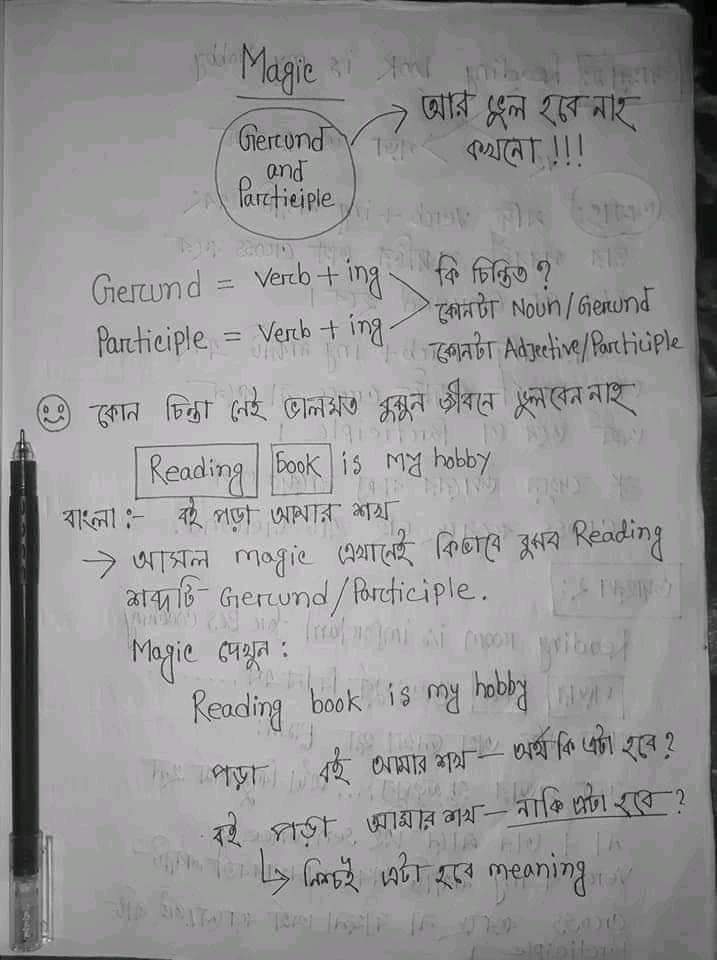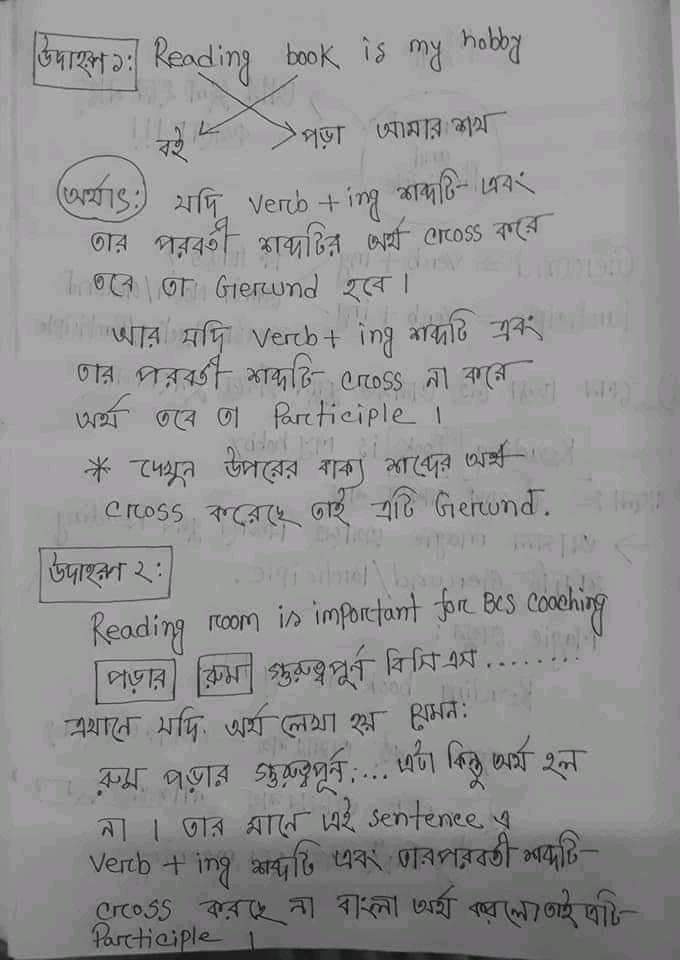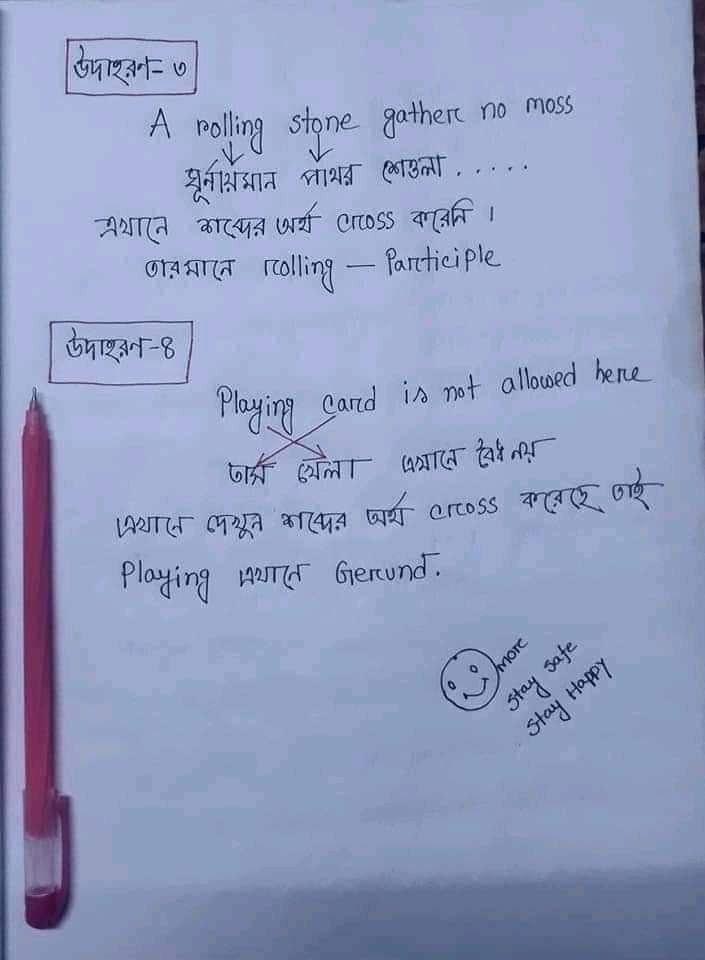Asked by
Birds of the sky (2 Golds)
Saturday, 26 Oct 2019, 07:31 AM
at (Education
Admission)
|
|
|
|
|
Answer(s):
Infinitive - Gerund - Participle Infinitive: To + verb present form Gerund: verb + ing (if works as Noun) Participle: verb + ing (is works as adjective) 1 rule of infinitive:
3 rules of Gerund:
3 rules of participle: (One kind of adjective)
View details in a video lecture. Link: https://www.facebook.com/GaziMizanOfficial/videos/368679570482930 Important rule to identify noun, adjective and
adverb - If one word is exists after
determiner/preposition/article, then it is noun. Ex: She is a girl
, Here girl = noun If two words are exists after
determiner/preposition/article, then first is adjective, second is noun. Ex:
She is a beautiful girl. Here, beautiful
is adjective, girl is noun. If three words are exists then 1st is adverb,
2nd is adjective, 3rd is noun. Ex: She is a very beautiful girl.
Here, very = adverb, beautiful = adjective, girl = noun. If four words are exists then 1st is adverb, 2nd is also adverb, 3rd is adjective, 4th is noun. Ex: She is a very much beautiful girl. Here, very = adverb, much = adverb, beautiful = adjective, girl = noun. Thanks. Share this posts with your friends. Answered by Birds of the sky (2 Golds) Saturday, 26 Oct 2019, 10:11 AM |
Infinitive: To + verb present form Gerund: verb + ing (if works as Noun)
Participle: verb + ing (is works as adjective) |
View details in a video lecture.Link: https://www.facebook.com/GaziMizanOfficial/videos/368679570482930 Important rule to identify noun, adjective and
adverb - If one word is exists after
determiner/preposition/article, then it is noun. Ex: She is a girl
, Here girl = noun If two words are exists after
determiner/preposition/article, then first is adjective, second is noun. Ex:
She is a beautiful girl. Here, beautiful
is adjective, girl is noun. If three words are exists then 1st is adverb,
2nd is adjective, 3rd is noun. Ex: She is a very beautiful girl.
Here, very = adverb, beautiful = adjective, girl = noun. If four words are exists then 1st is adverb, 2nd
is also adverb, 3rd is adjective, 4th is noun. Ex: She is a very much beautiful girl.
Here, very = adverb, much = adverb, beautiful = adjective, girl = noun.
Thanks. |
Read this pictures. Answered by AL MaMun (4 Golds) Wednesday, 25 Nov 2020, 10:11 PM


|
3. Perfect participle - (having + verbs past participle) is called perfect participle Ex: Having tired I went home.here, having tired is perfect participle. Answered by Birds of the sky (2 Golds) Saturday, 26 Oct 2019, 09:05 AM |
2. Past participle -
if past form of a verb works as an adjective. always placed before a noun,
Ex: Here is a broken chair. A lost opportunity
never returns. |
1. Present participle -
verb +ing (works as an adjective). Maximum placed before noun. Ex: A rolling stone
gathers no moss. Here stone is subject and it is noun. before stone
noun, rolling = roll + ing, (verb + ing) is an adjective. So as it works
as adjective. It is a present participle. More Ex: I saw a walking man,
Education is enlighting (enlighting modifies education,
we know that adjective modifies noun and pronoun) |
1 rule of infinitive:
3 rules of Gerund:
|
